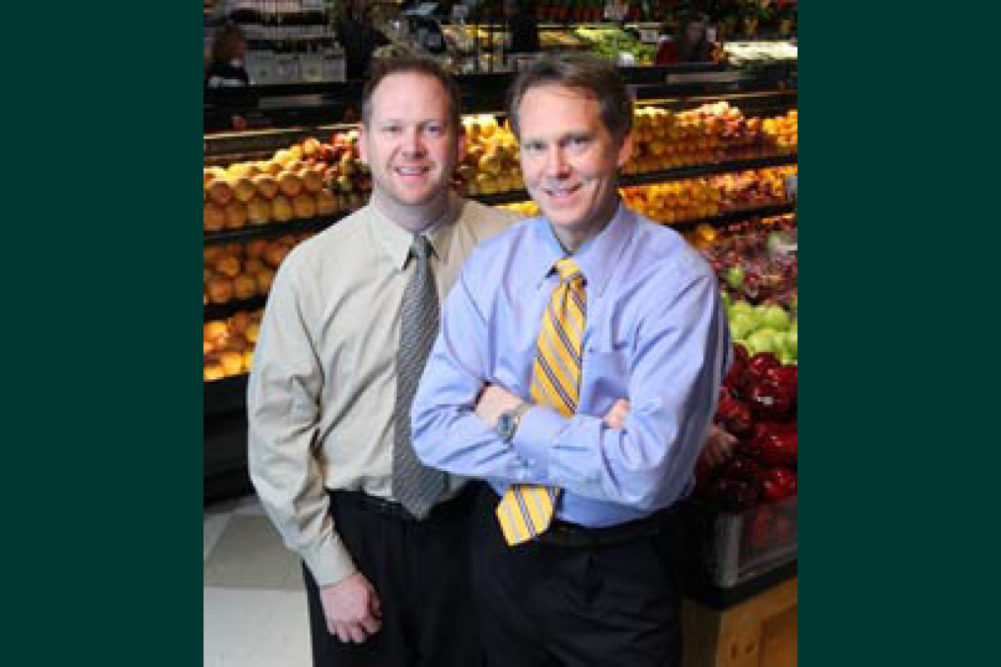From spot food shortages to local sourcing surges, the perishables grocery business is undergoing more change than at any point in recent history, according to supermarket industry leader Tim Metcalfe, president and co-owner of fourth-generation, family-owned grocer Metcalfe’s Market in Madison, Wis.
The challenge is how to prepare.
“For everybody in food distribution, this has been unprecedented,” said Metcalfe, speaking during the May 21 online presentation, “Global Crisis, Local Challenges: Pandemic Perspectives from a Regional Grocer.”
During stretches, “it’s been like Christmas Eve 14 days in a row.”
Meat supplies are “good,” and prices are rising slightly, slowing demand. Meat packing plants nearby are running at 50% capacity, “and it is probably going to stay that way for a while,” Metcalfe said.
For food products overall, “the consumer may not get the variety they absolutely love,” he continued. “We have best sellers, but fringe items are out of stock. We have 3,500 local items. I have local eggs, local meat, local bakery. Supporting local is really beneficial for us.”
Metcalfe’s Market is a three-store gourmet grocer in Wisconsin with a fourth, small location nestled in the Dane County Regional Airport in Madison, Wis. The company specializes in fresh baked breads and pastries from 25 local bakeries, more than 500 varieties of artisan cheeses, Boar's Head deli meats, and a large variety of local and organic produce.
The webinar is part of a new online conversation series, Food, Farms & the Future, hosted by Charleston│Orwig, a marketing and communications firm based in Hartland, Wis.
“Right from the beginning, we knew there would be a constant level of change in our organization. We’re used to change, but not such rapid change,” Metcalfe said. “We knew that even when we get out of this, there will be a question of what is the grocery business going to be like.”
Metcalfe said company officers monitored the situation closely from the start, tracking global news developments in China, Italy and elsewhere. First and foremost, they determined protection of workers and protection of customers are paramount.
“Our deli cases are not open for Memorial Day,” he said, citing an example of current protective measures.
Other steps included hiring an infectious disease consultant (dealing with questions like how to maintain a social distancing plan) and using artificial intelligence (AI) to monitor and manage in-store customer traffic.
“We have installed a mat in two stores that counts people coming in. We are implementing a new thermal imaging system that counts people coming in and out,” Metcalfe said, “so we never have queuing in checkout lines.”
Metcalfe recognizes that e-commerce had not been “overly adopted, but that’s going to be a huge change. People have gone there, and I think it’s going to stay that way.”
In other changes, fresh produce at Metcalfe Market stores is now “completely wrapped,” he said. “People want that because they don’t want somebody else touching their produce. Also, the Plexiglas is going to stay up. Personal safety is now a part of grocery shopping because they’re going to go where they feel the safest.”
Through social media, Metcalfe Market employs external communication via Facebook to alert customers about current procedures including one-way aisle and floor stickers regarding social distancing. The supermarket operator worked with local health officials on how to slow the spread and protect workers, as well as customers.
“Our customers are very supportive of what we’ve asked them to do,” Metcalfe said. “From the get-go, customers were very supportive of limits. We had limits on meat and then took it off because our customers knew not to hoard meat.”

